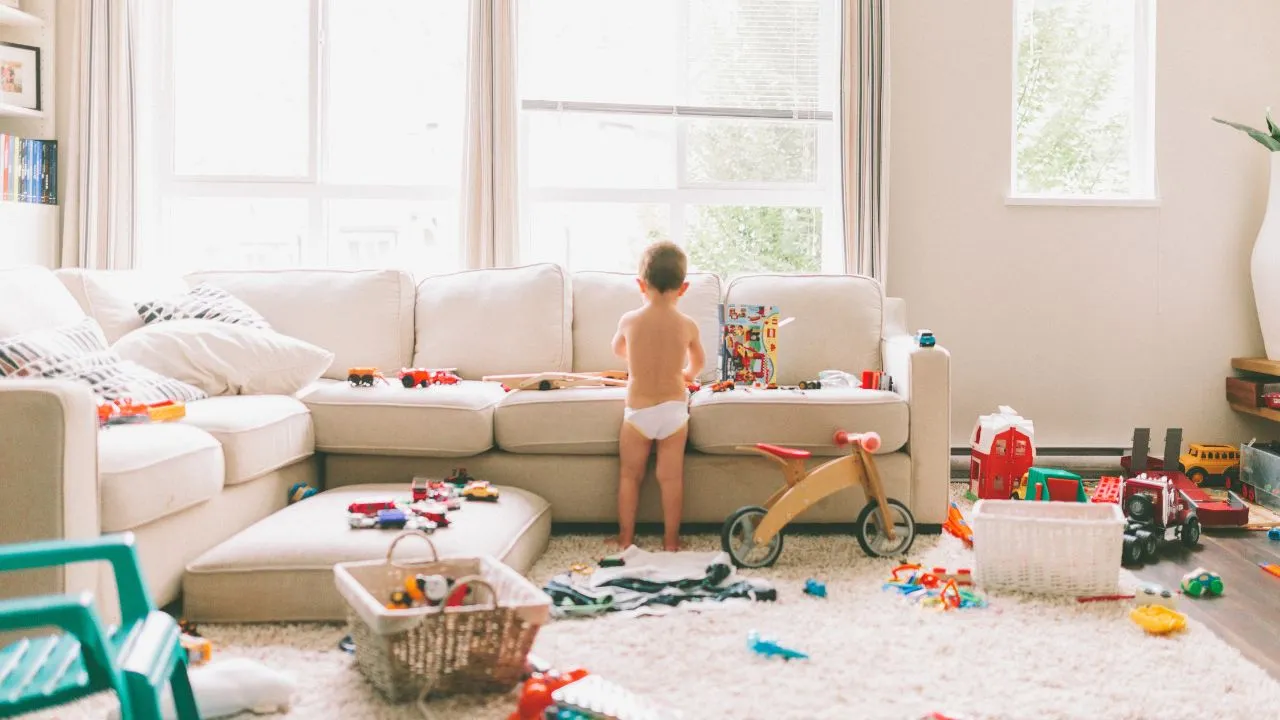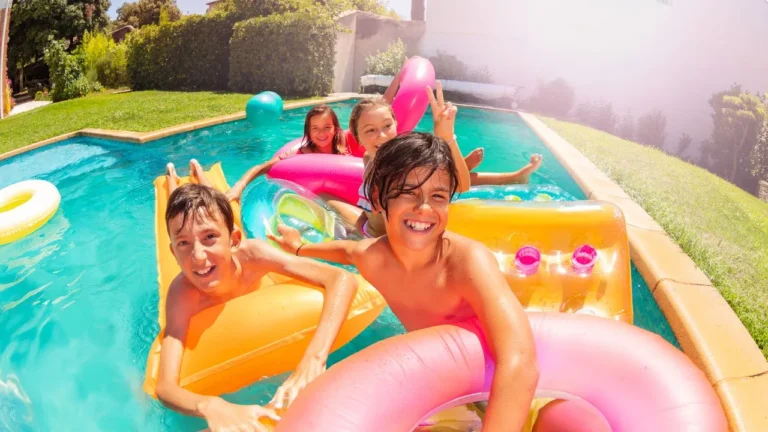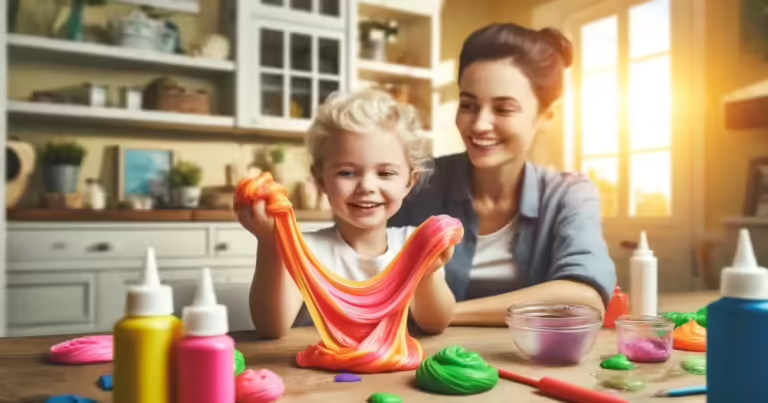Why Playing Alone is Important for Children: The Magic of Independent Play

Ever catch your child immersed in a world of make-believe, completely content playing alone? Well, there’s more to this solo act than meets the eye. Independent play isn’t just a pastime; it’s a classroom of its own, equipping your little ones with invaluable skills for life.
Whether your child finds themselves in a bustling classroom, a lively playground, or enjoying some alone time, the lessons learned from playing alone are important for children. Intrigued? Let’s dig into why your kiddo’s independent play is worth more than just a moment of peace for you.
The First Lesson is to Encourage Independent Play
Ever found your child completely captivated by a simple toy, as if they’ve found the most fascinating object in the world? That’s the magic of being able to play alone.
Kids who engage in solo play don’t look outward for their slice of happiness; they create it themselves. As they grow, this valuable skill evolves into self-reliance. They learn that while having a playmate is fun, they don’t always need one to be content. In the long run, it makes for confident, self-assured individuals.
Creative Geniuses: Solo Play Fuels Imagination
Let’s be honest, kids are natural-born creatives. But when you step back and give them some independent playtime, you’ll be amazed at the universes they can conjure up. Whether it’s turning a cardboard box into a pirate ship or a simple doll into a key character in an epic saga, their ability to play independently amplifies their creativity.
They become quick thinkers who can effortlessly adapt. So next time you’re tempted to guide their playtime, take a step back. Let their imagination run wild; it’s their natural problem-solving workshop.
Why Independent Play is a Social Skill Builder
You might think that children who play alone could end up being loners, but let’s debunk that myth right now! Independent play fosters social independence, a cornerstone in emotional development.
With time spent alone, children learn they don’t always need to be in the company of others to feel complete. This important lesson translates into an invaluable life skill: the ability to be comfortable in any social setting.
Furthermore, learning to play alone doesn’t mean your child will avoid social interactions or not want to play with others. Quite the opposite! It’s like a training ground that prepares them for the day ahead—whether it’s a morning of solo exploration, an afternoon playdate, or a sleepover with friends.
So, how does your child fare when it comes to independent play? Are you ready to tap into these lifelong benefits? Trust me, the rewards are well worth it.
The Zen Factor: How Playing Alone Calms the Young Mind
Does your kid seem to transform into a bundle of Zen-like calm when they’re knee-deep in their toybox? That’s no accident. Alone time has a unique way of taking a child’s mood to a serene place.
Far from the boisterous laughter and chaotic fun of the playground, solitary play is like a mini-meditation session. They explore, they focus, and they’re genuinely happy and content in their little world. Who wouldn’t want that for their child?
From Little Problem-Solvers to Emotion Whisperers: The Art of Self-Soothing
We all want to be the superheroes in our children’s lives, swooping in to save the day whenever they’re in distress. But what if your child could also be their hero? When kids learn to play alone, they naturally develop problem-solving skills and self-soothing mechanisms.
No, they won’t stop needing you, but they’ll start leaning into their emotional intelligence. They learn to understand their feelings better, which is a golden life skill. Plus, the ability to articulate those feelings to you? That’s a double win!
Independent Play as a Lifeline: Creating a Safety Net When You’re Not Around
Let’s face it, you’re the CEO, cook, and chief entertainer in your child’s life, but even CEOs need to delegate. When children can happily engage in independent play, it’s not just about keeping themselves occupied. It’s about feeling secure even when you’re not their constant playmate. They learn that ‘alone’ doesn’t mean ‘abandoned,’ and that’s an important lesson that echoes far beyond the living room.
School-Ready and Life-Ready: The Undervalued School Prep
As the main star in your child’s everyday drama, the idea of them going to school without you might sound like a leap. But guess what? Independent playtime serves as a gentle introduction to the concept that Mommy or Daddy can’t always be around. They start school with a strong emotional toolkit: they’re self-reliant, confident, and ready to explore the world without your hand tightly clutched in theirs.
Time for You: The Icing on the Independent Play Cake
Hey, self-care isn’t selfish; it’s a necessity. While the primary goal isn’t for you to get some downtime, teaching your child to play alone does give you a well-deserved break. You can sip that coffee, read a chapter, or simply breathe. And the best part? Your kids will pick up on this. They’ll see that everyone—yes, even parents—benefits from a little ‘me-time.’
So, how are you feeling about letting your little one dive into the world of independent play? Trust me, it’s one of the best gifts you can give your child—and yourself.
Final Thoughts: Playing Alone is Important for Children “Alone Time”
Let’s wrap this up, shall we? When it comes to your child’s development, solo kids’ play isn’t just a convenient way to keep them occupied while you tackle your to-do list. It’s a foundational stone in their emotional and cognitive growth. From a toddler discovering the magic in a simple toy to a school-age child diving deep into a make-believe world, independent play is the unsung hero in a well-rounded upbringing.
Ever seen the pure joy on a kid’s face during their “alone time? That’s the magic we’re talking about—the ability to play happily, explore freely, and simply be in their world. The importance of independent play isn’t just some parenting buzzword; it’s a reality backed by benefits that ripple across different aspects of your child’s life.
So, as busy as life gets, don’t forget to actively encourage independent play. Sure, playdates and family game nights are great but remember to also set aside time for your children to play alone. It’s a gentle, effective way to teach them essential life skills, foster emotional development, and give them a sense of freedom and security they’ll cherish forever.
Your takeaway? Learning to play independently isn’t a luxury; it’s a necessity. Encourage your child to embrace it, and watch them flourish into a confident, creative, and emotionally intelligent individual. Now, who’s up for a little “me-time”?







